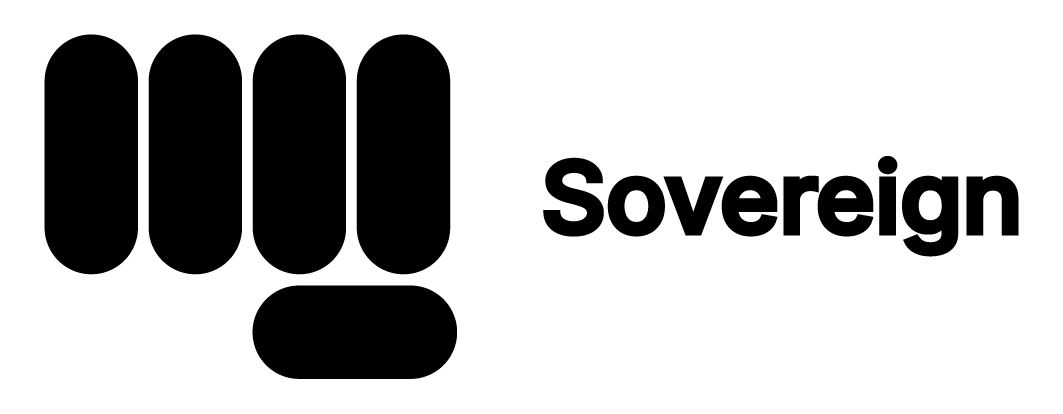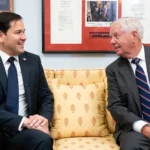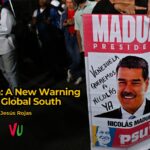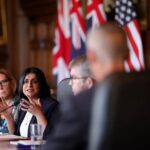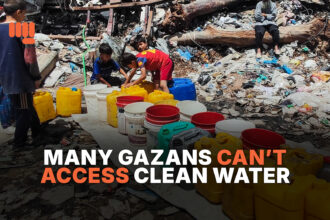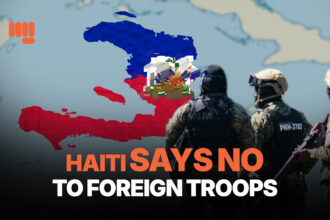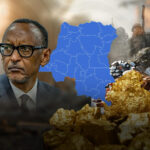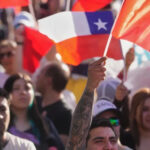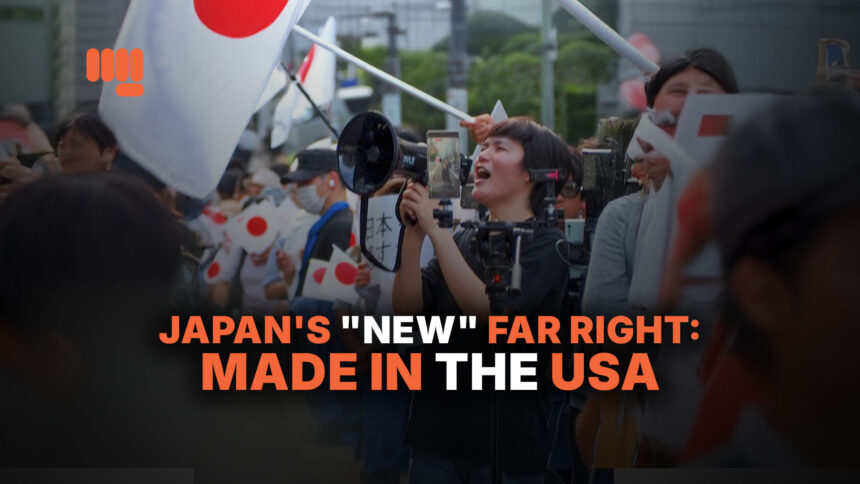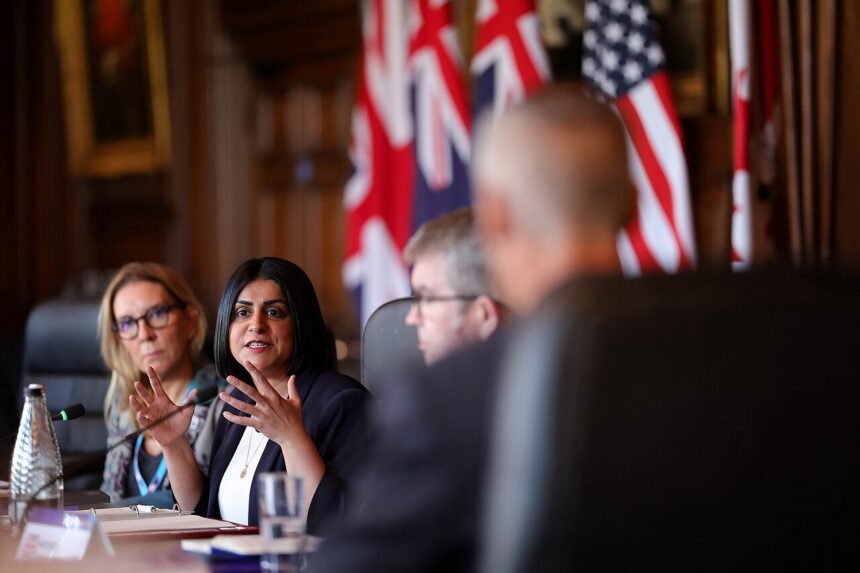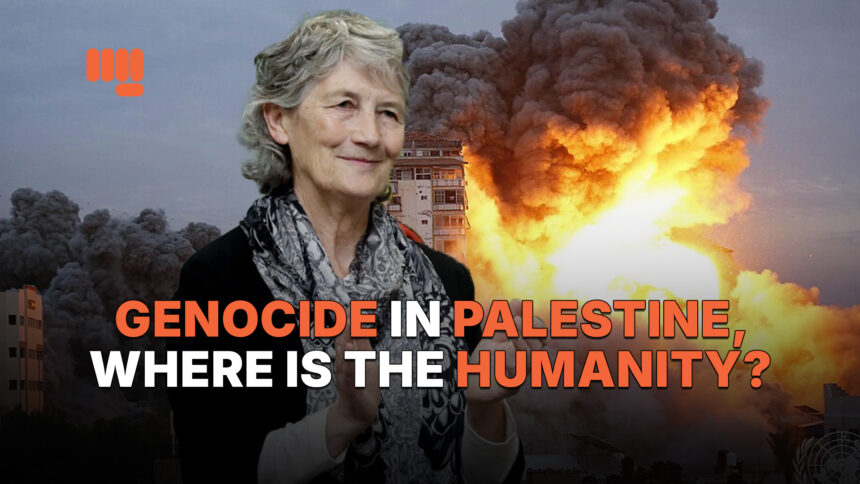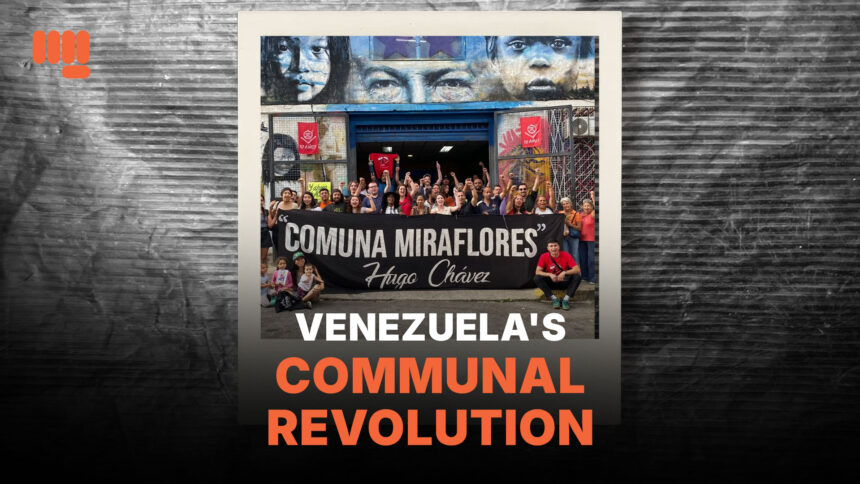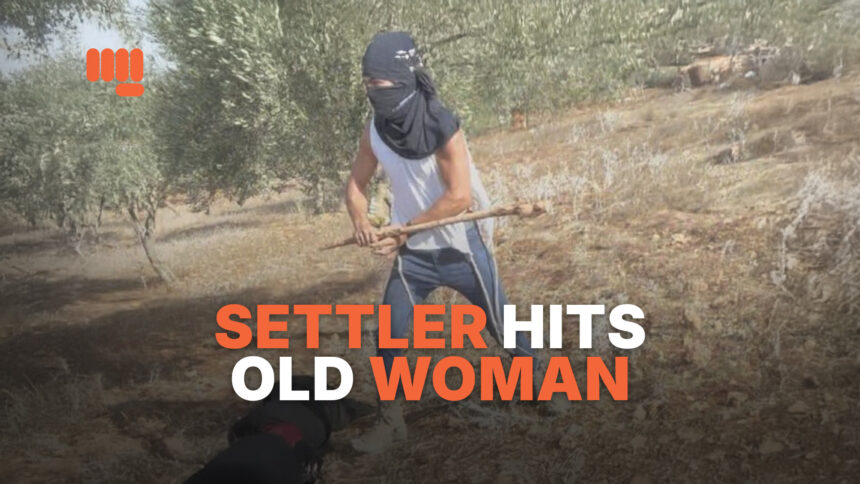Does anyone in Venezuela truly believe a US military invasion against the country is imminent?
Originally Published on Press Tv
This question pops up as soon as you step onto the streets of Caracas these days. Venezuelans seem focused on their daily lives and are already enjoying the Christmas season, which officially kicked off in October in the Latin American country.
There are no frantic food and water shopping sprees, no crowds rushing to leave the city for safer places, or mass departures from the country.
Strolling along the popular and bustling Sabana Grande boulevard, I casually asked people: “What about the invasion?” “What invasion?” was the common answer, or simply laughter.
Some, however, respond with a smile, quietly whispering, “Next week, Maduro is out.” Week after week, the phrase lingers but never arrives.
This atmosphere of normalcy is evident in the steady flow of public events across the capital.
For example, the Venezuelan baseball league kicked off on October 29, drawing around 35,000 fans to the inaugural game between longtime rivals, the Caracas Lions and Magallanes.
In the affluent Chacao district, thousands celebrated late into Saturday at street parties organized by the opposition-run municipality. Meanwhile, the annual Caracas Book Fair is underway in a public park, running from October 31 through November 10.
“The psychological warfare failed. While they invent crises, the people live, work, and enjoy themselves in peace. No amount of manipulation can overcome the reality of a country on the move,” said Diosdado Cabello, Vice President of the ruling United Socialist Party and Interior Minister, at a recent press conference. “Nothing will stop us,” he stressed.
The public calm on the streets sharply contrasts with the intense military buildup near Venezuela’s shores. Since August, the United States has deployed the most formidable force seen in the Caribbean since the 1962 Cuban Missile Crisis.
Washington claims this presence targets narcotrafficking, pointing to drone and missile strikes that have destroyed 16 small boats and killed at least 64 people, mostly in the Southern Caribbean, but also along the Pacific coast.
US War Secretary Peter Hegseth claimed they were drug smugglers, yet offered no evidence to back up his claims. After a long hesitation, the UN High Commission for Human Rights finally denounced those killings as extrajudicial executions.
In Venezuelan private and government circles, speculation runs high about the true US intentions. Most conclude that after such a massive show of force, Donald Trump may feel compelled to take even more drastic and potentially worse actions than just murdering unarmed and poor fishermen.
The question then becomes: what can this colossal force realistically achieve, and to what practical end? Everyone knows the strategic goal – Venezuela’s vast oil reserves and abundant natural resources, including gold, rare earths, and water.
“There is no clearer element in international relations than the United States’ capture of Venezuelan oil,” says Miguel Jaimes, a Mexican expert in oil and gas geopolitics.
For former US military officer and geopolitical analyst Scott Ritter, a full-scale invasion is inevitable, due to the need for a “Fortress America” to fend off the new world order currently in the making.
The socialist-oriented Bolivarian government of Nicolás Maduro stands as the main obstacle to that goal. The anti-imperialist revolution launched by the late Hugo Chávez, elected president in 1999, has faced US hostility from day one.
Tensions escalated sharply in 2015 when then-President Barack Obama labeled Venezuela an “extraordinary threat” to the United States, initiating the first wave of sanctions—now numbering in the hundreds.
By making the economy scream, blocking oil exports and financial flows, plus sabotaging essential imports such as parts, medicines or food, US strategists calculated or miscalculated that Maduro (Chavez’s successor) would easily fall by popular discontent.
Massive financial resources were funneled to support internal dissent, encouraging sabotage, civil disobedience, armed uprisings, foreign intervention, and military coups.
Yet to the imperial powers’ disappointment, the Bolivarian Revolution remains deeply rooted in the Venezuelan collective spirit, especially among the poor, who bear the brunt of sanctions and aggression. Continuous organizational and political efforts by the ruling socialist coalition have kept the core of the population mobilized and vigilant.
On the other hand, Venezuela’s political and economic strategists proved to be smarter than the enemy expected. After defeating a military coup in 2002 (against Chávez), a crippling sabotage of the oil industry in 2003, a revocatory referendum in 2004, uprisings in 2014, 2017 and 2019 (including the self-styled alternative “presidency” of Juan Guaidó and an attempt at invasion from Colombia), the revolution successfully stabilized both the economy and political system, integrating most of the opposition into the lawful structure.
As in the case of Iran, the foreign economic aggression helped Venezuelans redefine (and refine) their development model and the country’s military and foreign policy doctrines.
Traditionally, before the US economic and financial blockade, Venezuela imported at least 70 percent of its food with its oil revenues, neglecting domestic agriculture: purchasing food abroad was easier and cheaper.
To avoid famine, the government centralized food imports and organized the CLAP (Local Supply and Production Committees) system, based on the socialist-oriented Communal Councils of self-government.
The “CLAP bag” ensured a subsistence-level of staples and proteins to almost every family, initially with produce from other countries, while simultaneously promoting domestic agriculture by securing state purchases of produce at market prices.
Thanks to these policies, along with technological and financial incentives, the trend has reversed since 2019, and Venezuela is now self-reliant in about 90 percent of its food needs. Food self-sufficiency is one of the key elements in any war.
Controversial but effective monetary policies that allowed a partial dollarization of internal trade helped control hyperinflation, as did a flexibilization of customs barriers.
As a result, imported goods filled shelves, and new shops and supermarkets flourished. Though prices skyrocketed and inequalities resurged, the atmosphere changed dramatically, capitals returned and growth resumed.
This, together with drastic police strategies, brought calm to a city that was becoming notorious for its high crime rates. Emigration numbers also diminished and a trend of returnees soared.
This economic resilience is only one part of the Latin American country’s preparedness for the eventuality. The other is a deeply reformed military doctrine
Facing the direct threat of aggression, Hugo Chávez -himself an army officer- deeply changed both the country’s military doctrine and its ordnance base, through contracts with Russia, China and Iran. Military academies replaced the US-molded old national security and counterinsurgency scheme with a “war-of-the-people” against foreign foes doctrine.
An army general in the border zone proudly told me in 2019: “Before Chávez, we were a dump for outdated US military equipment, our guns pointing at our own people. We are now a modern army, equipped with the best weaponry available and we rely on the people for defending our country”.
Millions have enrolled since 2008-2009 in the People’s Bolivarian Militias, trained by the regular army. A government official explained that “milicianos” are being trained as snipers, and in guerrilla warfare and intelligence, which has apparently shown results in the capture by commoners of several sea and land infiltrated mercenaries over the last decade.
Venezuela’s top military leader, the Minister of Defense General Vladimir Padrino López, has warned that a foreign incursion will meet a well-trained and well-equipped staggered defense all over the nearly one-million square kilometers territory, abundant in jungles, mountains and “balls” among its some 30-million-strong population as commander Chávez once proclaimed.
Since August, military drills and air-defense exercises have been made public, in addition to operations to disperse ordnance and troops to unknown locations.
Likewise, Interior Minister Cabello has warned that those supporting a foreign invasion will be treated as traitors to the motherland, aiming mainly at María Machado, the extreme-right leader who has, over the years, repeatedly called for the overthrow of Maduro via a military intervention, a coup or a civil war.
Machado, a fierce supporter of the Israeli regime and who was awarded the 2025 Nobel Peace prize, recently renewed her calls for a US invasion, which she termed as “liberation” from drug dealers and Russian, Chinese, Iranian, Hamas and Hezbollah agents.
She has also promised to give a free hand to US companies to take over Venezuela’s natural resources in case she is installed as ruler.
Machado, who is believed to be hiding in the now-empty premises of the US embassy compound in Caracas, is the only West-backed opposition figure inside Venezuela to be supporting the aggression.
The Bolivarian leadership has stood calm and united in front of the menace, which is seen to be so far a psychological operation aimed at generating public panic and fractures, to destabilize the country and facilitate the possible killing or capture of Maduro and his close circle.
They know well that divisions and social destabilization have been the key factors in previous successful US interventions, such as those of Grenada in 1983 and Panama in 1989.
Internationally, many Latin American countries have been soft on this very sensitive matter, given the tragic history of CIA-directed coups and interventions, under pressure and afraid of enraging Trump. Colombia, whose president, Gustavo Petro, was swiftly blacklisted and labeled a drug dealer after he denounced the murder of fishermen in the Caribbean at the UN.
The story is different in the Caribbean, where the entire community of island states, except for Trinidad & Tobago, has rejected a repeat of Grenada 1983, when six of them supported the invasion.
Also different is the scenario resulting from strategic alliances that Venezuela has been forging with Russia, China and Iran.
In 2019, Iran organized a daring sea-convoy operation to bring gasoline and parts for a Venezuelan refinery at an extremely critical time.
Last week, Russian president Vladimir Putin solemnly put into effect a bilateral strategic pact, which includes a mutual military assistance clause, and Russian media outlets have claimed that it was Russian advisors who uncovered a CIA false-flag operation from Trinidad last week. China on its part, has publicly rejected the US bullying in the region.
A prolonged conflict between Venezuela and US, analysts concur, might become a quagmire and spark instability and chaos in the entire subregion, especially the borders with Colombia, with a historical track of guerrillas and right-wing paramilitary activities, and Brazil, where Venezuelan authorities have been able to leash up bands of illegal gold seekers who once controlled the border.
In order to occupy a vast and complex country, there must be a number of factors besides overwhelming air power, and most of them are not there, hence the apparent hesitation.
A former Venezuelan diplomat once told me that it is high time for President Maduro to take good care of himself. Despite this, Maduro has not slowed down his agenda, frequently attending public events and maintaining close contact with the people. He understands that his physical presence instills a sense of calm and confidence among the populace.
The military, just in case, has publicly warned that no matter what happens, they will not allow “a bunch of fascist oligarchs” to reign over a country under foreign occupation.
This story thus has an open end.
Alejandro Kirk is a Venezuelan-Chilean journalist and a senior correspondent for Hispan TV.
(The views expressed in this article do not necessarily reflect those of Press TV)
